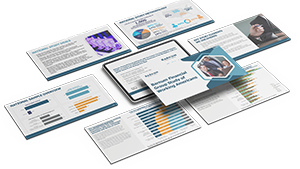
Connecticut has taken steps to implement one of its most substantial state tax cuts in recent history. The projected potential annual relief of this tax cut will be nearly $500 million by 2025.
The focal point of this comprehensive tax package is the enhancement of exemptions and tax advantages. Specifically ones geared towards retirement income, which includes pensions, annuities, and individual retirement accounts (IRAs).
This will make Connecticut a prime destination for retirees.
Recent changes initiated in the 2024 tax year introduce a sliding scale for retirees with higher incomes. The chart shows the specific details.

Important Numbers to Note
As the Adjust Gross Income (AGI) increases, the percentage of deductible income gradually decreases. If the AGI falls within $75,000 to $77,499 (single filers) or $100,000 to $104,999 (married filing jointly). Then 85% of their income becomes deductible.
The deductions continue to decrease in increments as the AGI rises until it reaches 5% for those with an AGI between $90,000 to $94,999 (single filers) or $130,000 to $139,999 (married filing jointly).
The updated tax exemptions provide a strong incentive for married couples to contemplate separate filings, as they can leverage the advantages of being categorized as single filers and benefiting from a potentially lower tax bracket.
How Retirees Benefit from The CT Tax Break
Social Security Tax Exemptions
Retirees can reap rewards as Connecticut modifies its taxation of Social Security income along federal guidelines. Those with modest AGIs (below $75,000 for individuals; $100,000 for couples) will experience complete state tax exemption on their Social Security income. If your income exceeds these limits, you may get a partial exemption, with a maximum of 25% of your Social Security benefits subject to state tax.
Military and Railroad Retirement Pay Tax Breaks
Retired military personnel and railroad workers will also enjoy state income tax exemptions on their pay. If you have served in the military or worked in the railroad industry, you can retain your full retirement during your retirement years.
Retired Municipal Teachers Tax Breaks
The new tax laws reduce the taxable income for retired teachers by 50%, lowering the portion of their income subject to taxation. The provisions make some retired teachers eligible for a more extensive pension and annuity exemption. The lower tax liabilities apply fully to single filers and married individuals filing separately with AGIs below $75,000 and couples filing jointly with AGIs under $100,000.
General Pension and Annuity Income
Retirees will also enjoy income tax exemptions on their general pension and annuity income if their combined AGI is below $75,000 annually. Likewise, couples filing jointly with AGIs under $100,000 yearly are fully exempt from taxation.
Individual Retirement Accounts (IRA) Tax Exemptions
Beginning in 2024, Connecticut will use the same income criteria to determine tax exemptions for IRAs (excluding Roth IRAs) as it does for general pension and annuity income. The income thresholds determining whether a retiree qualifies for a tax exemption on their retirement income will be consistent for both IRAs and general pension and annuity earnings.
The state will incrementally increase the portion of IRA income excluded from taxation. In 2024, eligible individuals will enjoy a 50% exemption of their IRA income from state taxes. This percentage will rise to 75% in 2025 and reach 100% in 2026. Simple and SEPs.
Disclaimer: Neither MML Investors Services nor any of its subsidiaries, employees or agents are authorized to give legal or tax advice. Consult your own personal attorney, legal or tax counsel for advice on specific legal and tax matters.

